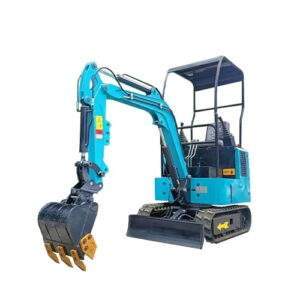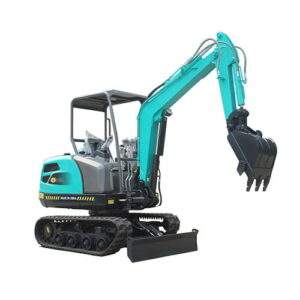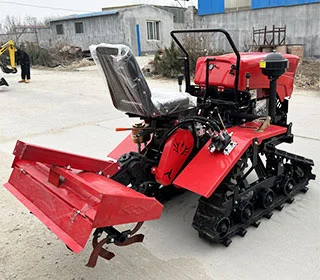Full-Function Mini Excavators: Power in a Small Package
Welcome to My Blog!
Before we dive into the content, I’d love for you to join me on my social media platforms where I share more insights, engage with the community, and post updates. Here’s how you can connect with me:
Facebook:https://www.facebook.com/profile.php?id=61557298070472
Now, let’s get started on our journey together. I hope you find the content here insightful, engaging, and valuable.
Introduction

Full-function mini excavators are compact, versatile pieces of construction equipment designed to tackle a wide range of tasks in confined spaces. Unlike their larger counterparts, full-function mini excavators offer unparalleled maneuverability, precision, and efficiency. This makes them indispensable tools for various industries, including construction, landscaping, agriculture, and utility work.
Why Choose a Full-Function Mini Excavator?
Full-function mini excavators offer a host of advantages that make them a popular choice for contractors and homeowners alike:
- Unmatched Versatility: From digging trenches and foundations to landscaping and demolition, full-function mini excavators can handle a diverse array of tasks with ease.
- Superior Maneuverability: Their compact size allows them to navigate tight spaces, making them ideal for urban environments and projects with limited access.
- Enhanced Precision: With precise hydraulic controls, full-function mini excavators enable operators to perform delicate tasks with accuracy, reducing the risk of damage to surrounding structures.
- Increased Efficiency: By automating many manual labor-intensive tasks, full-function mini excavators significantly boost productivity and reduce labor costs.
- Improved Safety: Equipped with advanced safety features like operator protection structures and emergency stop systems, full-function mini excavators prioritize operator safety.
- Environmental Friendliness: Many modern full-function mini excavators are powered by fuel-efficient engines and low-emission technologies, minimizing their environmental impact.
Understanding the Components of a Full-Function Mini Excavator
To fully appreciate the capabilities of a full-function mini excavator, it’s essential to understand its key components:
- Undercarriage: The undercarriage provides the machine’s stability and mobility, allowing it to traverse various terrain conditions, from soft soil to hard surfaces.
- Boom and Arm: These components work in tandem to extend the excavator’s reach and digging depth, enabling it to work in a wide range of configurations.
- Bucket: The bucket is the working end of the machine, used for digging, scooping, grading, and other tasks. Different bucket types are available to suit specific applications, such as digging buckets, grading buckets, and demolition buckets.
- Hydraulic System: The hydraulic system is the lifeblood of the full-function mini excavator, powering the machine’s movements and attachments. It consists of pumps, valves, and cylinders that work together to provide smooth and precise control.
- Engine: The engine provides the power needed to operate the hydraulic system and drive the machine’s various functions. Modern full-function mini excavators are equipped with fuel-efficient engines that deliver ample power while minimizing emissions.
Benefits of Using Full-Function Mini Excavators
The benefits of using full-function mini excavators are numerous:
- Increased Productivity: By automating many manual tasks, full-function mini excavators significantly boost productivity on construction sites and other projects.
- Reduced Labor Costs: By reducing the need for manual labor, full-function mini excavators can help lower labor costs and improve project profitability.
- Improved Safety: With advanced safety features and operator protection structures, full-function mini excavators provide a safer working environment for operators.
- Enhanced Precision: The precise hydraulic controls of full-function mini excavators allow for accurate and delicate work, minimizing damage to surrounding structures and infrastructure.
- Environmental Friendliness: Many modern full-function mini excavators are equipped with fuel-efficient engines and low-emission technologies, reducing their environmental impact.
Applications of Full-Function Mini Excavators
Full-function mini excavators are incredibly versatile machines with a wide range of applications across various industries:
- Construction: Digging trenches, foundations, and utility lines; installing underground pipes and cables; backfilling excavations; and demolition work.
- Landscaping: Creating ponds and water features, grading land, installing retaining walls, and clearing debris.
- Agriculture: Digging post holes, trenching for irrigation systems, clearing land, and loading materials.
- Utility Work: Installing and repairing underground utilities, such as water, sewer, and gas lines.
- Demolition: Breaking up concrete and removing debris from demolition sites.
Choosing the Right Full-Function Mini Excavator
When selecting a full-function mini excavator, consider the following factors:
- Operating Weight: The operating weight of the machine determines its lifting capacity and overall performance. Choose a weight class that suits your specific needs.
- Digging Depth and Reach: The digging depth and reach of the machine will impact its ability to perform various tasks. Consider the depth and reach required for your projects.
- Engine Power: The engine power determines the machine’s overall performance and lifting capacity. Choose an engine that provides sufficient power for your applications.
- Hydraulic Flow Rate: The hydraulic flow rate affects the speed and responsiveness of the machine’s movements. A higher flow rate generally results in faster cycle times.
- Attachments: Consider the types of attachments you’ll need for your projects, such as digging buckets, grading buckets, demolition buckets, auger attachments, and hydraulic breakers.
Maintenance and Safety Tips for Full-Function Mini Excavators

Proper maintenance and safety practices are essential for maximizing the lifespan and performance of your full-function mini excavator.
- Regular Maintenance: Adhere to the manufacturer’s recommended maintenance schedule, including regular oil changes, filter replacements, and inspections of hydraulic hoses and fittings.
- Safety Training: Ensure that all operators are properly trained and certified to operate the full-function mini excavator safely.
- Daily Inspections: Before each use, conduct a thorough inspection of the machine, checking for any signs of damage, leaks, or loose components.
- Ground Conditions: Be mindful of ground conditions and adjust operating techniques accordingly to avoid tipping or getting stuck.
- Safe Operating Practices: Always follow safe operating practices, such as wearing appropriate personal protective equipment, avoiding distractions, and never exceeding the machine’s rated capacity. Be aware of your surroundings and potential hazards, such as overhead power lines and underground utilities.
Conclusion
Full-function mini excavators have revolutionized the construction industry by offering unmatched versatility, efficiency, and precision in compact packages. Whether you’re a professional contractor or a homeowner tackling a DIY project, a full-function mini excavator can be an invaluable asset. By understanding the key features, benefits, and maintenance tips, you can make an informed decision when selecting the right model for your specific needs.
FAQ
What is the difference between a mini excavator and a skid steer?
Mini excavators and skid steers are both versatile construction machines, but they have distinct differences. Mini excavators are primarily used for digging and excavating tasks, while skid steers are more versatile machines that can be equipped with various attachments for tasks like loading, grading, and material handling.
How do I transport a full-function mini excavator?
Full-function mini excavators can be transported using a variety of methods, including trailers, flatbed trucks, and specialized transport equipment. The specific transportation method will depend on the size and weight of the machine.
What attachments are available for full-function mini excavators?
A wide range of attachments are available for full-function mini excavators, including digging buckets, grading buckets, demolition buckets, auger attachments, hydraulic breakers, and thumb grapples.
How much does a full-function mini excavator cost?
The cost of a full-function mini excavator can vary widely depending on factors such as size, brand, age, and condition. New full-function mini excavators can range in price from tens of thousands to hundreds of thousands of dollars.
What safety precautions should I take when operating a full-function mini excavator?
When operating a full-function mini excavator, it is essential to prioritize safety. Always wear appropriate personal protective equipment, such as a hard hat, safety glasses, and gloves. Avoid operating the machine on unstable ground or near drop-offs. Never exceed the machine’s rated capacity. Be aware of your surroundings and potential hazards, such as overhead power lines and underground utilities.



